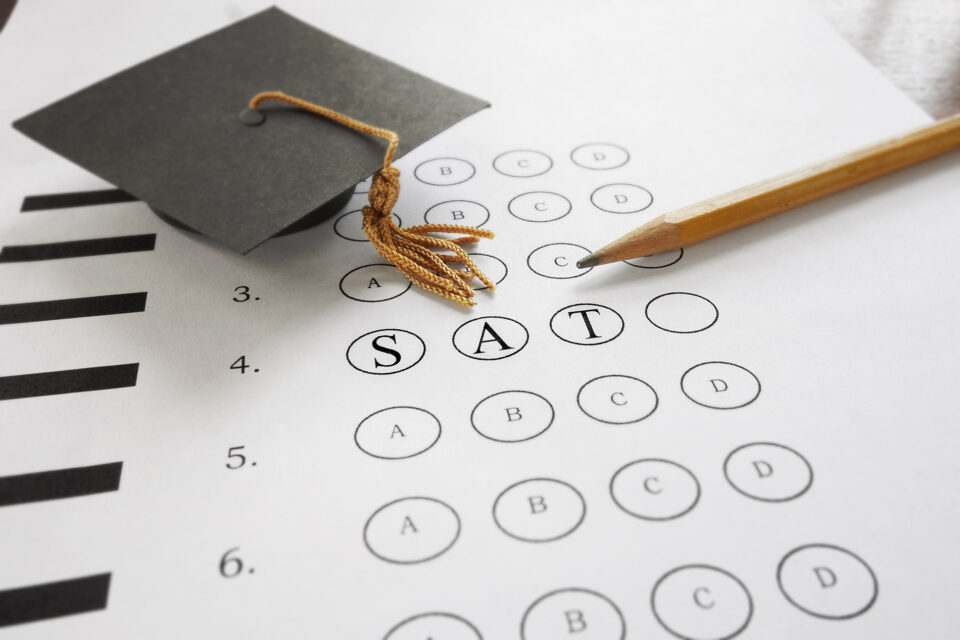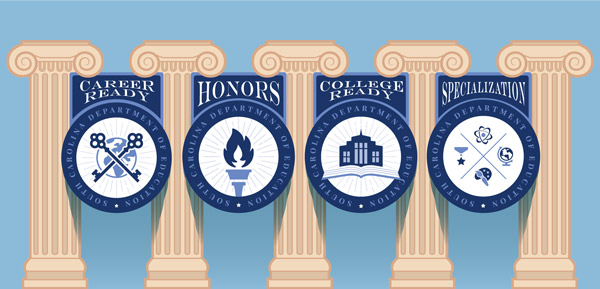
Higher Ed
Digital Badging at the System Level
We use cookies to help you navigate efficiently and perform certain functions. You will find detailed information about all cookies under each consent category below.
The cookies that are categorized as "Necessary" are stored on your browser as they are essential for enabling the basic functionalities of the site. ...
Necessary cookies are required to enable the basic features of this site, such as providing secure log-in or adjusting your consent preferences. These cookies do not store any personally identifiable data.
Functional cookies help perform certain functionalities like sharing the content of the website on social media platforms, collecting feedback, and other third-party features.
Analytical cookies are used to understand how visitors interact with the website. These cookies help provide information on metrics such as the number of visitors, bounce rate, traffic source, etc.
Performance cookies are used to understand and analyze the key performance indexes of the website which helps in delivering a better user experience for the visitors.
Advertisement cookies are used to provide visitors with customized advertisements based on the pages you visited previously and to analyze the effectiveness of the ad campaigns.
Other cookies are those that are being identified and have not been classified into any category as yet.

It may come as a surprise to no one that the collegiate journey is rapidly evolving, and the ACT and SAT may be things of the past. The pandemic changed the admissions process as we know it; standardized testing requirements have been pushed to the side as universities try to cope with the surge of application rates, which may have altered the future of admissions altogether, as explained by EdSource.
“More and more colleges are saying they’re going to extend their test-optional policy at least for the current junior class,” college counselor Sara Harberson told The Post. “And after this year, I think we’ll see more colleges adopt it permanently.”
But this doesn’t mean that universities are letting down their guards — if anything, there’s more scrutiny over student choice. Students seeking to gain acceptance into college need to have a better understanding of their chance of getting in and focus on ways to boost their transcripts before applying. This also means the transcript as we know it needs to change, supporting different competencies, skills and experiences to better highlight each student’s accomplishments, capabilities and drive.
Student grades are more important than ever
Senioritis may be miraculously cured this year, with more high school students paying close attention to their grades up until the day they graduate. Student transcripts are becoming more important than ever, and colleges are likely to be keeping an eye on certain classes taken by students during their senior year, course rigor, and how well they did in said classes.
How high school transcripts can evolve with the times
Grades may be important, but with standardized tests potentially out of the picture, universities want to know more about their potential new students. Demonstrated interests, extracurricular activities and volunteer work are excellent ways to prove qualities and skills gained through experiences outside of the classroom. Finding a way to better translate these factors into the student transcript can make a less stressful, more equitable replacement for testing.
“This is what we want to do going forward,” Brandon Tuck, the director of admissions at Cal Poly Pomona told Ed Source. “We don’t want to go back. We want to look at the entire student when we look at our admissions process. We don’t want to boil it down to just two data points. Yes, it’s more work, but it’s rewarding, and we feel good about it.”
Traditionally, extracurriculars, part-time work and volunteer activities have been staples to add to a college application. If high school transcripts could instead highlight all of these features, it would not only make the application process easier for students, but it could also easily trail behind the student as they move from one university to another, and then on to their full time job after graduation.
The Opportunity for School Districts and State Boards of Education
The opportunity that this new test-optional admissions process illuminates isn’t solely for students looking to improve their chances of getting accepted. It’s a great way for school districts to better recognize and celebrate the accomplishments of their students while empowering them for whichever pathway they may choose after high school.
The South Carolina Department of Education is partnering with Parchment to recognize extraordinary academic achievements by high school graduates. South Carolina has identified six pathways by which students can earn a Seal of Distinction, a certified seal that accompanies their high school diploma. This project acknowledges the rising trend and necessity for credentials to be digitized and more reflective of the considerable accumulated accomplishments of students who go above and beyond grades and course credits in pursuit of academic excellence.

The South Carolina Seals of Distinction
Parchment supports the extension of transcripts through our work with leading districts and their state departments to standardize education data and build out frameworks to develop and issue digital credentials.
Contact us today to learn more about our offerings and how we can work with your district or state.
